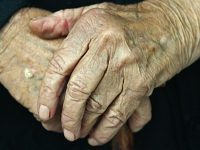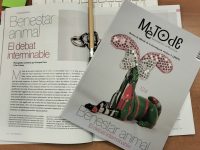
 © USDA |
||
|
The crisis that broke out after finding horse DNA in burgers has helped Imegen (Institute for Genomic Medicine) to expand its market and make itself known abroad. By using a very innovative tool— a kit that finds horse DNA in meat—, this company is making its way into the national and international biotech scene, thus claiming the potential of Valencian science. In Spain alarms were raised no more than a month ago when two brands— Eroski Basic and Alipende— were found to be selling burgers with horsemeat not identified as such in the label. The list of products affected by this irregularity increases day by day. Ikea’s meatballs or La Cocinera’s cannelloni have already been cleared from the market by the Spanish government. The American company Life Technologies ordered Imegen the creation of this technological tool when the horsemeat scandal broke out in Ireland. This request was not «sheer chance», explained Manuel Pérez— co-founder and head of the Valencian company— since the American company was already acquainted with Imegen’s work (in fact, they had already been working together developing new technology to detect GMO material in food). Thanks to this project, Imegen signed a collaboration agreement with Life Technologies for five years, according to Ángela Pérez— manager of the company. |
«We have been able to pack the whole process into a box including the necessary tools to run the tests» |
|
 © Imegen Imegen’s team, the Valencian company which has developed a test to detect horse DNA in meat products. |
«If researchers develop what society needs there is room for science in Spain» Manuel Pérez |
|
|
They fulfilled their goal in only one month, but «we have devoted the whole company to this end. We took turns and have been operating 24/7, because we had to give a quick response to this issue— fighting a fraud», explained the head of the company. There are two types of tests— a kit of qualitative detection (i.e. it sets whether there is or not horse DNA in the sample) and a kit to establish the quantity of DNA. Their price ranges from €500 for the first kind of kit which enables us to run up to 44 tests whereas the second one costs €600 approximately, according to Ángela Pérez. Before creating this DNA test, Imegen already offered analysis services that required the results to be sent to the ordering entity. The real novelty lies in having been able to «pack the whole process inside a box that includes the necessary tools and a user manual. This way we can export our technology to other laboratories», points out Manuel Pérez, who is also full Professor at the Department of Genetics of the University of Valencia. Valencian Science spreading Both Imegen’s manager and head are very satisfied with the reception of their product, which has only been «on the market for a few days» and which has sold over 50 units in countries like the UK, France or India. One company that has acquired the kit is Findus, one of the brands affected by the horsemeat scandal. «In addition, we have 120 orders which are being made at the moment» according to Ángela Pérez. The researcher has also said that Imegen is already working on the development of new kits to detect ovine, bovine and porcine DNA, since «it can be really helpful for countries which for ideological or cultural reasons do not approve of the consumption of some kind of animals, like pork in Saudi Arabia». For both scientists this achievement has a positive effect on Valencian research, still in development and a victim of scarcity due the current economic crisis. «We have proved that Valencian laboratories are capable of producing good technology and exporting it to multinational companies internationally acclaimed», says Manuel Pérez, for whom the key to scientific success lies in «developing what society needs. If we do so, there is room for science in Spain». Laura Garsando. Journalist (Valencia). |
||





